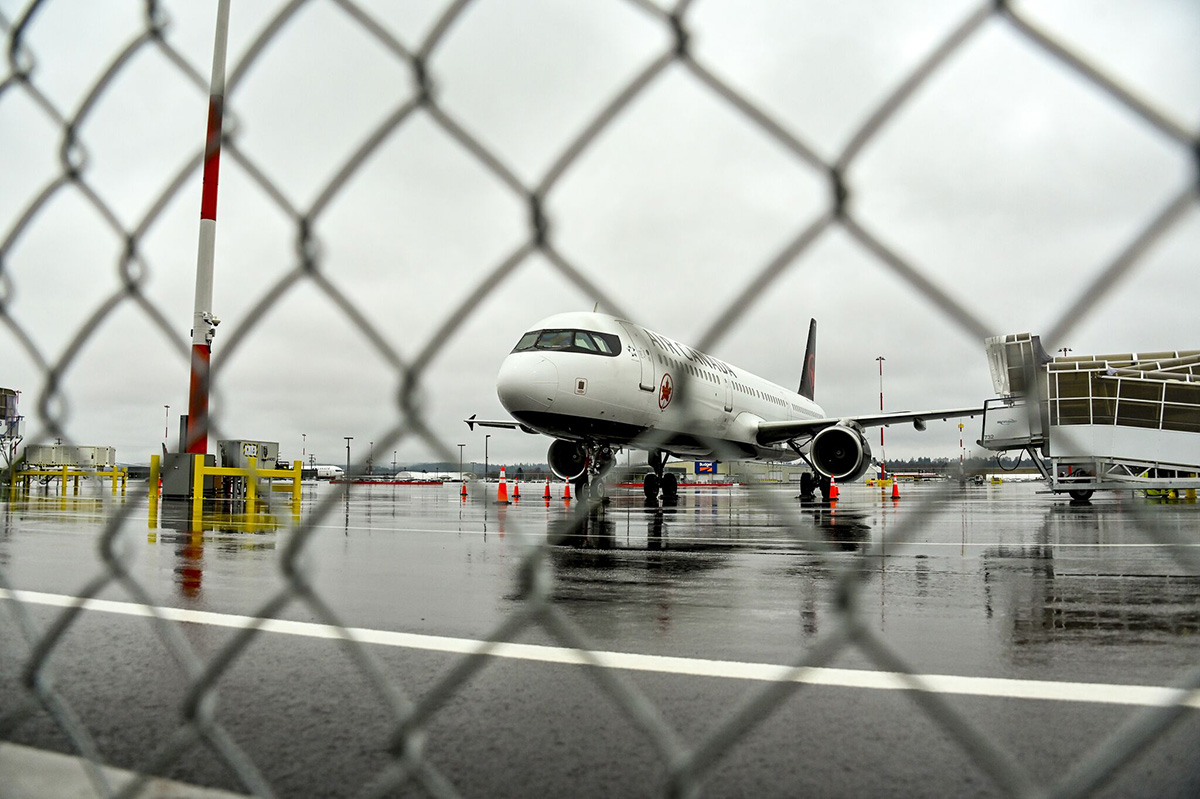Compiled by veteran medical journalist Brian Owens, this roundup of some of the newest science on the COVID-19 pandemic, straight from the scientific journals, is presented by Hakai Magazine in partnership with The Tyee.
COVID-19 was already in France in December
A nasal sample taken from a patient in France in December 2019 has tested positive for SARS-CoV-2, the virus that causes COVID-19. This suggests the virus was already circulating in the country a month before any cases were officially identified.
International Journal of Antimicrobial Agents, May 3, 2020
Clot-busting drug could tackle COVID-19
A drug used to break up blood clots in people who have had a stroke could be repurposed to treat COVID-19. The drug, called tissue plasminogen activator, breaks up the fibrin scaffold that blood clots are made of. Abnormal blood clots in the lungs were recently identified as a complication of the disease.
Journal of Thrombosis and Haemostasis, May 4, 2020
Suppressing immune system may help with COVID-19
Temporarily suppressing part of a patient's immune system may be helpful in treating COVID-19. Researchers modelled the human immune response to the virus and found that the adaptive immune system — the slower, more targeted response — was activating too soon, and not giving the innate immune system — the faster but less specific line of defence — enough time to clear the infection. This led to the overactive immune response that is seen in many patients. Drugs like corticosteroids that can delay the immune response could improve outcomes.
Journal of Medical Virology, May 1, 2020

Controlling blood sugar is key for people with diabetes and COVID-19
People with Type 2 diabetes who are infected with COVID are at greater risk of poor outcomes than their healthy counterparts. But Type 2 diabetics whose blood sugar levels are well-controlled fare much better than those with poorly-controlled levels. They are less likely to die, and require fewer medical interventions, such as ventilation.
Cancer patients face high mortality from COVID-19
People with cancer are much more likely to die if they contract COVID-19 than those without cancer. Out of 218 cancer patients with COVID-19 in New York City, 61 of them died — a dramatically high fatality rate of 28 per cent. The researchers concluded that mortality was most closely related to frailty, age and other underlying conditions such as heart disease, rather than active cancer treatments. They say life-saving cancer treatments should not be postponed. Instead, better strategies to protect cancer patients from infection need to be developed.
Travel restrictions curbed the spread of COVID-19
A mathematical model of the spread of COVID-19 in Europe has shown the huge impact that strict travel restrictions imposed within the continent had on containing the disease. The model predicts that millions more people in Europe could have been infected had the restrictions not been implemented. The simulation can also predict the results of lifting restrictions and could be used to help guide reopening strategies.
Computer Methods in Biomechanics and Biomedical Engineering, May 5, 2020
Immune responses vary between patients
Researchers in China studied 14 recovered COVID-19 patients and found that while most produce antibodies and immune cells against the virus, the kind of immune response can vary widely between patients. The study also found that antibodies were still present in the blood at least two weeks after a patient had recovered.
New mutation spotted in SARS-CoV-2
Researchers in Arizona have identified a new mutation in SARS-CoV-2, the virus that causes COVID-19: a version of the virus that had lost 81 letters from its genetic code. The deletion removes several amino acid building blocks from a protein the virus uses to help it infect its host. The mutation is similar to one that also occurred in the 2003 SARS virus, and may have weakened the virus so that it causes less severe disease but spreads more easily. It is not yet clear whether this mutation will similarly weaken SARS-CoV-2.
Journal of Virology, May 1, 2020 ![]()
Read more: Health, Coronavirus, Science + Tech















Tyee Commenting Guidelines
Comments that violate guidelines risk being deleted, and violations may result in a temporary or permanent user ban. Maintain the spirit of good conversation to stay in the discussion.
*Please note The Tyee is not a forum for spreading misinformation about COVID-19, denying its existence or minimizing its risk to public health.
Do:
Do not: